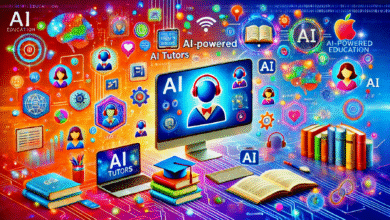20 Life-Changing Self-Improvement Tips Every College Student Must Know
Transform your college experience with 20 proven self-improvement tips. Boost academic performance, develop life skills, and build lasting success habits.

College represents one of the most transformative periods in a person’s life, offering unprecedented opportunities for self-improvement and personal growth. As a college student, you’re navigating academic pressures, social dynamics, financial responsibilities, and the gradual transition into adulthood. This critical phase demands intentional personal development strategies that extend far beyond textbooks and lecture halls.
The self-improvement tips outlined in this comprehensive guide aren’t just theoretical concepts—they’re practical, actionable strategies that thousands of successful students have implemented to maximize their college experience. Whether you’re a freshman feeling overwhelmed by newfound independence or a senior preparing for post-graduation life, these student success strategies will help you develop the skills, habits, and mindset necessary for both academic excellence and lifelong achievement.
Modern college life presents unique challenges that previous generations never faced. From digital distractions and social media pressures to increased competition and economic uncertainty, today’s students need robust personal growth techniques to thrive. The beauty of focusing on self-improvement during college lies in the perfect storm of opportunity: you have access to resources, time for experimentation, and the neuroplasticity that comes with youth.
Research consistently shows that students who actively engage in personal development during their college years demonstrate higher academic performance, better mental health outcomes, improved career prospects, and stronger relationships. The habits and skills you develop now will compound over time, creating a foundation for success that extends decades beyond graduation.
This article presents 20 carefully selected self-improvement tips that address the most crucial areas of college student development: academic excellence, physical and mental health, financial literacy, social skills, time management, and career preparation. Each tip is designed to be implementable immediately, regardless of your current circumstances or resources.
1. Master the Art of Time Management
Time management represents the cornerstone of college success and effective self-improvement. Unlike high school, where your schedule was largely predetermined, college demands that you create structure from chaos. The most successful college students understand that time is their most valuable resource and treat it accordingly.
Effective time management strategies begin with comprehensive planning. Start by conducting a time audit—track how you spend each hour for one week to identify patterns, time wasters, and optimization opportunities. Many students discover they’re losing 2-3 hours daily to unproductive activities like aimless social media scrolling or inefficient study methods.
Implement the time-blocking technique by assigning specific time slots to different activities: classes, studying, meals, exercise, and leisure. This approach transforms abstract intentions into concrete commitments. Use digital tools like Google Calendar or physical planners to visualize your schedule and maintain accountability.
The Pomodoro Technique offers another powerful student productivity method. Work in focused 25-minute intervals followed by 5-minute breaks, with longer breaks after every fourth session. This approach combats mental fatigue while maintaining high concentration levels throughout study sessions.
Priority management goes hand-in-hand with time management. Learn to distinguish between urgent and important tasks using the Eisenhower Matrix. Focus your energy on important activities that contribute to long-term goals rather than getting caught up in urgent but trivial matters that create the illusion of productivity.
2. Develop Effective Study Techniques
Traditional study methods often prove inadequate for college-level material. Self-improvement in academics requires adopting evidence-based learning strategies that maximize retention and understanding while minimizing time investment.
Active recall stands as one of the most powerful study techniques available. Instead of passively re-reading notes, actively test yourself on the material. Create flashcards, practice problems, or explain concepts aloud without referring to your materials. This process strengthens neural pathways and identifies knowledge gaps that need attention.
Spaced repetition leverages the psychological spacing effect to improve long-term retention. Review material at increasingly longer intervals: after one day, then three days, then one week, then two weeks. This technique proves especially effective for memorizing facts, vocabulary, and formulas across various subjects.
The Feynman Technique enhances deep understanding by requiring you to explain complex concepts in simple terms. Choose a topic, write an explanation as if teaching a child, identify areas where your explanation becomes unclear or complicated, then return to source materials to fill knowledge gaps. This process reveals superficial understanding and promotes genuine comprehension.
Create a dedicated study environment that promotes focus and learning. This space should be quiet, well-lit, organized, and free from distractions. Establish consistent study rituals that signal to your brain it’s time to focus, such as playing specific background music or drinking tea before beginning study sessions.
3. Build Strong Financial Literacy
Financial literacy represents a critical self-improvement area that most college students overlook until they’re drowning in debt. Developing smart money management habits during college sets the foundation for lifelong financial success and reduces stress that can derail academic performance.
Start by creating a comprehensive budget that tracks every dollar coming in and going out. Use apps like Mint, YNAB, or simple spreadsheets to categorize expenses and identify spending patterns. Many students discover they’re spending significantly more on dining out, entertainment, or impulse purchases than they realize.
Understand the true cost of student loans beyond just monthly payments. Calculate the total amount you’ll pay over the life of the loan, including interest. This perspective often motivates students to minimize borrowing, seek scholarships more aggressively, or consider more affordable educational options.
Build an emergency fund, even if you can only contribute $10-20 monthly. Having a financial cushion prevents small emergencies from becoming major crises that derail your education. Start with a goal of $500, then gradually work toward one month’s expenses.
Learn to distinguish between needs and wants. Before making any non-essential purchase, implement a 24-48 hour waiting period. This simple strategy eliminates most impulse buying and helps you make more intentional spending decisions aligned with your values and goals.
Explore income opportunities that complement your studies rather than competing with them. Consider tutoring in subjects you excel at, freelancing skills you already possess, or work-study positions that provide relevant experience for your future career.
4. Prioritize Physical Health and Fitness
Physical health directly impacts academic performance, mental clarity, and overall college success. Yet many college students neglect their bodies in pursuit of academic achievements, creating a counterproductive cycle where poor health undermines the very goals they’re trying to achieve.
Regular exercise provides numerous student wellness benefits beyond physical fitness. Physical activity increases blood flow to the brain, improves memory and concentration, reduces stress hormones, and promotes better sleep quality. Even 20-30 minutes of daily movement can significantly impact your academic performance and mood.
Find physical activities you genuinely enjoy rather than forcing yourself through workout routines you hate. This might include dancing, hiking, swimming, martial arts, intramural sports, or yoga. When exercise feels like play rather than punishment, you’re more likely to maintain consistent habits.
Nutrition plays a crucial role in student health and cognitive function. Focus on eating regular meals that include protein, complex carbohydrates, healthy fats, and plenty of fruits and vegetables. Avoid relying heavily on processed foods, energy drinks, and excessive caffeine, which create energy spikes followed by crashes that impair concentration and mood.
Stay adequately hydrated throughout the day. Dehydration, even at mild levels, can cause fatigue, headaches, and decreased cognitive performance. Carry a water bottle and aim for at least 8 glasses of water daily, more if you’re physically active or live in a hot climate.
Establish consistent sleep schedules that align with your natural circadian rhythms. Most college students need 7-9 hours of sleep nightly for optimal cognitive function, immune system health, and emotional regulation. Create a bedtime routine that promotes quality sleep by limiting screen time, keeping your room cool and dark, and avoiding caffeine late in the day.
5. Cultivate Mental Health and Emotional Intelligence
Mental health represents a critical component of self-improvement that directly impacts every other area of your college experience. Developing emotional intelligence and stress management skills creates resilience that serves you throughout life.
Learn to recognize signs of stress, anxiety, and depression early, when they’re easier to address. Common symptoms include changes in sleep patterns, appetite, concentration, motivation, or social behavior. Don’t wait until problems become overwhelming before seeking support—early intervention is always more effective.
Develop a toolkit of stress management techniques that work for your personality and lifestyle. This might include meditation, deep breathing exercises, journaling, progressive muscle relaxation, or mindfulness practices. Experiment with different approaches to find what resonates with you.
Build a strong support network that includes friends, family, mentors, and professional resources. Don’t try to navigate college challenges entirely on your own. Most campuses offer counseling services, support groups, and mental health resources—utilize these services proactively rather than reactively.
Practice emotional regulation by developing awareness of your emotional patterns and triggers. Learn healthy ways to process and express emotions rather than suppressing them or letting them control your behavior. This skill proves invaluable for maintaining relationships, making good decisions under pressure, and achieving long-term goals.
Set boundaries with technology and social media to protect your mental health. Constant comparison with others’ highlight reels on social platforms can damage self-esteem and create unrealistic expectations. Consider regular digital detoxes or limit social media use to specific times and durations.
6. Enhance Communication and Social Skills
Strong communication skills and social abilities significantly impact college success and future career prospects. These interpersonal skills can be developed through intentional practice and self-awareness.
Practice active listening by giving others your full attention during conversations. Put away devices, make eye contact, ask clarifying questions, and summarize what you’ve heard to ensure understanding. This skill improves relationships, reduces misunderstandings, and makes you a more effective collaborator.
Develop your public speaking abilities through class presentations, joining organizations like Toastmasters, or participating in campus events. Public speaking anxiety affects most people, but regular practice builds confidence and competence that serves you in job interviews, meetings, and leadership roles.
Learn to give and receive feedback constructively. Practice delivering criticism in ways that focus on behaviors rather than personalities, and receive feedback with openness rather than defensiveness. These skills prove essential for group projects, workplace collaboration, and personal relationships.
Expand your social circle beyond your immediate comfort zone. Engage with people from different backgrounds, majors, and perspectives. This diversity enriches your college experience and develops cultural competency that’s increasingly valuable in our globalized world.
Practice conflict resolution skills by learning to address disagreements directly but respectfully. Avoid passive-aggressive behavior or conflict avoidance, which often escalate problems. Instead, focus on finding mutually beneficial solutions and maintaining relationships even when you disagree.
7. Set Clear Goals and Track Progress
Goal setting provides direction and motivation for your personal development journey. Without clear objectives, it’s easy to drift through college without maximizing the opportunities available to you.
Use the SMART criteria to create specific, measurable, achievable, relevant, and time-bound goals. Instead of vague aspirations like “do better in school,” set specific targets like “maintain a 3.5 GPA this semester by studying 2 hours daily and attending all office hours.”
Break large goals into smaller, manageable steps that create momentum and prevent overwhelm. If your goal is to land a competitive internship, break it down into steps like researching companies, updating your resume, developing relevant skills, networking with professionals, and practicing interview skills.
Regularly review and adjust your goals based on changing circumstances and new information. What seemed important as a freshman might be less relevant as a junior. Stay flexible while maintaining focus on your core values and long-term vision.
Track your progress using journals, apps, or spreadsheets. Regular monitoring helps you identify what’s working, what isn’t, and where you need to adjust your approach. Celebrate small wins along the way to maintain motivation during challenging periods.
Create accountability systems by sharing your goals with friends, family, or mentors who can provide support and gentle pressure to stay on track. Consider forming study groups or personal development partnerships with fellow students who share similar aspirations.
8. Master Digital Organization and Productivity
In our digital age, technology management has become a crucial self-improvement skill for college students. Learning to harness technology’s benefits while avoiding its pitfalls can dramatically improve your productivity and mental health.
Organize your digital files using a consistent, logical system that makes information easy to find. Create folder structures for each semester and class, use descriptive file names, and regularly back up important documents to cloud storage services.
Leverage productivity apps and tools that complement your learning style and workflow. Consider note-taking apps like Notion or Obsidian for organizing class materials, task management tools like Todoist or Any.do for tracking assignments, and calendar apps for scheduling and reminders.
Practice digital minimalism by regularly decluttering your devices and online accounts. Unsubscribe from unnecessary email lists, delete apps you don’t use, and organize your digital spaces just as you would your physical environment.
Set boundaries around technology use to prevent it from interfering with sleep, study time, or face-to-face relationships. Use features like Do Not Disturb modes, app time limits, and website blockers during focused work sessions.
Stay informed about digital privacy and security to protect your personal information and academic work. Use strong, unique passwords for all accounts, enable two-factor authentication where available, and be cautious about what personal information you share online.
9. Develop Leadership and Teamwork Abilities
Leadership skills and teamwork abilities are essential for college success and career advancement. These competencies can be developed through various campus activities and conscious practice.
Seek leadership opportunities that align with your interests and career goals. This might include joining student government, leading clubs or organizations, organizing campus events, or taking on responsibility in group projects. Start small and gradually take on more significant challenges as your confidence grows.
Learn different leadership styles and when to apply them. Sometimes situations call for directive leadership, while others benefit from collaborative or servant leadership approaches. Develop flexibility in your leadership style based on team needs and circumstances.
Practice delegation and trust-building by learning to assign tasks effectively and support team members’ success. Good leaders don’t try to do everything themselves—they develop others’ capabilities and create systems that work even in their absence.
Understand group dynamics and your role within teams. Some people naturally facilitate discussion, others generate creative ideas, and still others excel at implementation. Recognize your strengths while developing skills in other areas to become a more versatile team member.
Learn to manage difficult team situations, such as conflicts between members, unequal contribution levels, or communication breakdowns. These challenges are common in both academic and professional settings, so developing these skills during college provides a significant advantage.
10. Build a Professional Network Early
Networking isn’t just about collecting business cards—it’s about building genuine relationships that provide mutual value and support throughout your career. Starting this process during college gives you a significant advantage over peers who wait until after graduation.
Attend campus career fairs, industry events, and professional organization meetings relevant to your field. Come prepared with thoughtful questions and a brief introduction that highlights your interests and goals. Follow up with new connections within 24-48 hours to maintain momentum.
Develop relationships with professors, teaching assistants, and staff members who can provide mentorship, recommendations, and industry connections. Attend office hours not just when you need help, but to engage in deeper conversations about the field and career paths.
Utilize LinkedIn effectively by creating a professional profile, connecting with classmates and professionals, and sharing relevant content that demonstrates your interests and expertise. Engage with others’ posts thoughtfully rather than just passively consuming content.
Consider informational interviews with professionals in your field of interest. Most people are willing to spend 15-30 minutes sharing their career journey and insights with motivated students. These conversations provide valuable industry knowledge and can lead to mentorship relationships or job opportunities.
Give back to your network by offering assistance, sharing relevant opportunities, and making introductions between contacts who might benefit from knowing each other. Networking is most effective when it’s mutually beneficial rather than one-sided.
11. Develop Critical Thinking and Problem-Solving Skills
Critical thinking abilities distinguish successful college students from those who merely memorize information. These skills enable you to analyze complex problems, evaluate evidence, and make sound decisions in academic and professional contexts.
Question assumptions and seek evidence for claims, whether they come from textbooks, professors, news sources, or peer discussions. Develop healthy skepticism that leads to deeper understanding rather than cynical dismissal of all information.
Learn to identify logical fallacies and biases that can cloud judgment. Understanding common reasoning errors helps you think more clearly and communicate more persuasively. Practice spotting these issues in political debates, advertisements, and everyday conversations.
Approach problems systematically by breaking them down into components, generating multiple potential solutions, evaluating alternatives, and implementing the best option while monitoring results. This structured approach works for everything from academic assignments to personal challenges.
Seek diverse perspectives on complex issues rather than surrounding yourself only with people who share your views. Engage respectfully with different viewpoints to broaden your understanding and strengthen your own positions through thoughtful consideration of alternatives.
Practice articulating your reasoning clearly and concisely. Whether in written assignments or verbal discussions, learn to present logical arguments supported by evidence. This skill proves invaluable in job interviews, workplace discussions, and personal relationships.
12. Cultivate Creativity and Innovation
Creativity isn’t limited to artistic pursuits—it’s a valuable skill for problem-solving, entrepreneurship, and career advancement across all fields. College students who develop creative thinking abilities stand out in competitive job markets.
Make time for creative activities that bring you joy, whether that’s writing, music, visual arts, crafting, or any other form of creative expression. These activities provide stress relief while developing creative muscles that transfer to other areas of life.
Practice brainstorming techniques like mind mapping, free writing, or the “six thinking hats” method to generate new ideas and solutions. Learn to suspend judgment during idea generation phases and evaluate options separately to avoid prematurely limiting possibilities.
Expose yourself to diverse experiences, ideas, and cultures that can spark new connections and insights. Travel when possible, read books outside your major, attend cultural events, and engage with people from different backgrounds.
Learn from failure by viewing setbacks as learning opportunities rather than defeats. Innovation requires experimentation, and experimentation inevitably involves some failures. Develop resilience and the ability to extract lessons from unsuccessful attempts.
Collaborate with others to combine different perspectives and skill sets in creative projects. Some of the most innovative solutions emerge from interdisciplinary collaboration where people from different fields bring unique insights to common challenges.
13. Practice Mindfulness and Self-Reflection
Mindfulness and self-reflection are powerful tools for personal growth that help you understand yourself better, make more intentional choices, and navigate college challenges with greater resilience and clarity.
Establish a regular mindfulness practice through meditation, yoga, or simply spending quiet time in nature. Even 5-10 minutes daily can reduce stress, improve focus, and increase emotional regulation. Use apps like Headspace or Calm if you need guidance getting started.
Keep a reflection journal where you regularly examine your thoughts, feelings, experiences, and growth. Write about challenges you’re facing, lessons you’re learning, and goals you’re pursuing. This practice increases self-awareness and helps you process experiences more deeply.
Practice gratitude by regularly acknowledging positive aspects of your life, even during difficult periods. Gratitude practices have been shown to improve mental health, relationships, and overall life satisfaction. Consider keeping a gratitude journal or sharing appreciation with others.
Develop body awareness by paying attention to physical sensations, tension patterns, and how your body responds to different situations. This awareness can help you recognize stress early and make choices that support your physical and mental wellbeing.
Create regular check-ins with yourself to assess how you’re doing across different life areas—academics, relationships, health, finances, and personal growth. Use these assessments to make adjustments and maintain balance in your life.
14. Learn Continuously Beyond the Classroom
Lifelong learning is essential in our rapidly changing world. College students who develop habits of continuous learning position themselves for success in dynamic career environments where skills become obsolete quickly.
Identify learning opportunities beyond required coursework that align with your interests and career goals. This might include online courses, workshops, conferences, podcasts, books, or documentary films. Make learning a habit rather than something you only do when assigned.
Develop multiple learning modalities to maximize your ability to acquire new knowledge and skills. Some people learn best through reading, others through listening, and still others through hands-on practice. Experiment with different approaches to find what works best for different types of content.
Stay current with trends and developments in your field by following industry publications, blogs, and thought leaders. Set up Google alerts for relevant topics, subscribe to newsletters, and join professional associations that provide ongoing education opportunities.
Learn skills that complement your major and increase your versatility. For example, business students might learn basic coding, while engineering students might develop communication skills. This cross-training makes you more valuable and adaptable in the job market.
Teach others what you’re learning through tutoring, study groups, blog posts, or presentations. Teaching forces you to organize your knowledge clearly and identify gaps in your understanding. It also builds communication skills and can provide income opportunities.
15. Manage Stress and Build Resilience
Stress management and resilience are crucial self-improvement skills that determine how well you handle college challenges and setbacks. Developing these abilities early creates a foundation for handling life’s inevitable difficulties.
Identify your personal stress triggers and early warning signs so you can address stress before it becomes overwhelming. Common triggers for college students include academic pressure, social conflicts, financial concerns, and uncertainty about the future.
Develop a varied toolkit of stress relief techniques because what works in one situation might not work in another. This might include exercise, meditation, talking to friends, listening to music, spending time in nature, or engaging in hobbies you enjoy.
Learn to reframe challenges as opportunities for growth rather than threats to your wellbeing. This cognitive shift, known as benefit finding, helps you maintain a positive outlook during difficult periods and extract valuable lessons from setbacks.
Build resilience by developing strong support networks, maintaining perspective during difficult times, and focusing on factors within your control rather than worrying about things you cannot change.
Practice self-compassion by treating yourself with the same kindness you would show a good friend facing similar challenges. Avoid harsh self-criticism, which only adds to stress without providing motivation for positive change.
16. Develop Cultural Competency and Global Awareness
In our interconnected world, cultural competency and global awareness are essential skills for college success and career advancement. These abilities enable you to work effectively with diverse populations and navigate international opportunities.
Seek opportunities to interact with people from different cultural backgrounds through international student organizations, cultural events, study abroad programs, or volunteer work with diverse communities. These experiences broaden your perspective and challenge assumptions.
Learn about different cultural communication styles, values, and business practices. What seems normal in one culture might be offensive or confusing in another. This knowledge prevents misunderstandings and enables more effective collaboration.
Develop language skills that complement your career goals. Even basic proficiency in a second language demonstrates cultural awareness and can open opportunities in increasingly global job markets.
Stay informed about international news and global trends that might impact your field or future career opportunities. Understanding global contexts helps you make more informed decisions and identify emerging opportunities.
Practice cultural humility by acknowledging that you don’t know everything about other cultures and remaining open to learning from others’ experiences and perspectives. This attitude fosters better relationships and continuous learning.
17. Master Financial Planning and Career Preparation
Career preparation and financial planning are interconnected aspects of self-improvement that require attention throughout your college years, not just during senior year job searches.
Research career paths in your field thoroughly, including typical entry-level positions, advancement opportunities, salary ranges, and required skills. Use resources like O*NET, Bureau of Labor Statistics, and informational interviews to gather comprehensive information.
Develop relevant skills and experiences through internships, part-time jobs, volunteer work, and campus activities. Employers value candidates who can demonstrate practical application of their knowledge and skills.
Build a strong resume and portfolio that effectively communicate your value to potential employers. Tailor these materials for specific opportunities rather than using generic versions for all applications.
Practice interview skills through mock interviews with career services, friends, or family members. Prepare thoughtful answers to common questions and develop your own questions that demonstrate genuine interest in opportunities.
Start saving for post-graduation expenses early, including security deposits, professional clothing, job search costs, and living expenses during potential unemployment periods. Having financial cushion reduces stress during career transitions.
18. Embrace Failure as a Learning Opportunity
Learning to handle failure constructively is a crucial self-improvement skill that distinguishes resilient college students from those who are derailed by setbacks. Failure is inevitable, but your response to it determines your ultimate success.
Reframe failure as feedback rather than judgment of your worth or abilities. Each failure provides information about what doesn’t work, bringing you closer to solutions that do work. This perspective shift reduces the emotional sting of setbacks and maintains motivation for continued effort.
Analyze failures systematically to extract maximum learning value. What factors contributed to the outcome? What could you have done differently? What will you do differently next time? This analysis prevents repeating the same mistakes and accelerates improvement.
Share your failures and lessons learned with others who might benefit from your experience. This vulnerability builds deeper relationships and helps others avoid similar pitfalls. It also reduces the shame often associated with failure.
Develop a growth mindset that sees abilities as developable through effort and practice rather than fixed traits. This mindset increases resilience because setbacks are viewed as temporary rather than permanent limitations.
Set learning goals alongside performance goals. While performance goals focus on outcomes, learning goals focus on skill development and knowledge acquisition. This dual approach maintains motivation even when performance goals aren’t achieved.
19. Practice Self-Care and Work-Life Balance
Self-care and work-life balance aren’t luxuries—they’re essential practices for sustained college success and personal wellbeing. Students who neglect these areas often experience burnout that undermines their academic and personal goals.
Recognize that rest and relaxation are productive activities that restore your energy and creativity. Schedule downtime just as you would schedule study sessions or classes. This prevents burnout and maintains long-term productivity.
Develop hobbies and interests outside of academics that provide enjoyment and stress relief. These activities provide perspective during difficult academic periods and contribute to your identity beyond being a student.
Learn to say no to commitments that don’t align with your priorities or values. College students often feel pressure to participate in everything, but overcommitment leads to stress and poor performance across all activities.
Create boundaries between study time and personal time to prevent academic concerns from consuming your entire life. This might mean designating certain hours as study-free zones or limiting academic discussions during social activities.
Regularly assess your overall life satisfaction and make adjustments when you notice imbalances. If you’re spending all your time studying and neglecting relationships, health, or personal interests, you need to recalibrate your priorities.
20. Plan for Life After College
Post-graduation planning should begin early in your college career rather than during your final semester. Students who prepare systematically for life after college experience smoother transitions and better outcomes.
Develop a five-year plan that outlines your career goals, financial objectives, and personal aspirations. While these plans will certainly evolve, having a framework helps you make decisions that align with your long-term vision.
Build a financial foundation that will support your post-graduation transition. This includes managing student loan debt, building credit responsibly, saving money, and understanding the financial realities of your chosen career path.
Develop independent living skills that your parents might have handled previously, such as cooking, budgeting, apartment hunting, healthcare navigation, and basic home maintenance. These practical skills reduce stress during the transition to full independence.
Create a professional brand through social media, personal websites, or portfolio development that showcases your skills and interests to potential employers. Clean up inappropriate content and present yourself as the professional you want to become.
Start building relationships and networks in your target geographic area if you plan to relocate after college. This might involve connecting with alumni networks, joining professional organizations, or visiting potential cities to explore opportunities and build connections.
Conclusion
Self-improvement during college represents one of the most valuable investments you can make in your future success and happiness. The 20 strategies outlined in this guide provide a comprehensive framework for personal development that addresses the key areas essential for thriving as a college student and beyond.
Remember that personal growth is a gradual process that requires patience, consistency, and self-compassion. You don’t need to implement all these strategies simultaneously—start with one or two that resonate most strongly with your current needs and circumstances. As these become habits, gradually add additional practices to your self-improvement toolkit.
The skills and habits you develop during college will compound over time, creating advantages that extend throughout your career and personal life. Students who invest in personal development during these formative years consistently report higher life satisfaction, career success, and resilience in facing life’s challenges.
Your college experience is ultimately what you make of it. By implementing these self-improvement tips consistently and thoughtfully, you’re positioning yourself not just for academic success, but for a fulfilling and impactful life that makes the most of your potential and contributes positively to the world around you.











